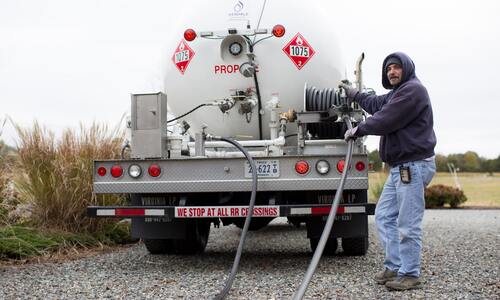The Hidden Vulnerability Behind the Dispatch Desk

In a propane operation, your dispatcher often functions as the hub of all moving parts. From coordinating delivery routes to managing driver communication and handling schedule adjustments, this role holds significant operational value. But when a single dispatcher begins to operate with full autonomy, without documentation or oversight, your business becomes exposed to avoidable risk.
If that person leaves, falls ill, or even resists sharing their knowledge, your entire workflow can grind to a halt. A strong dispatcher should be an asset – but when your business becomes dependent on their memory and habits, rather than documented processes, it becomes vulnerable.
How Dispatcher Dependency Forms
The issue typically builds over time. You may have started with a small, agile team where everyone knew a bit of everything. But as the business scaled, responsibilities naturally narrowed. The dispatcher ended up with control over routing logic, customer service records, driver schedules, and emergency procedures – none of which are stored anywhere outside their head or personal spreadsheets.
That’s when operational knowledge becomes tribal – known only to one person and passed on informally, if at all. The lack of SOPs (standard operating procedures) means your business can’t function at full capacity if that person is unavailable.
Signs of Operational Bottlenecks
Dispatcher dependency often shows up in operational inefficiencies. Some signs of this situation typically include:
• No one else can explain how delivery zones are organized
• Driver schedules can’t be adjusted without the dispatcher’s input
• Customer complaints increase during their absence
• There’s no centralized access to routing, service logs, or scheduling notes
• Training a backup becomes “impossible” due to complexity
• When processes become “too custom” to document, it’s time to step in.
Systematizing Dispatcher Functions
The first step toward fixing this issue is implementing process mapping. Document all routine dispatcher tasks, including delivery routing criteria, driver check-in procedures, customer service protocols, and emergency dispatch steps. Use digital tools such as routing software, CRM platforms, or fleet management dashboards that allow shared access and transparency.
You should also establish internal documentation protocols. For instance, every route plan should be stored in a shared cloud system. Delivery updates should be logged automatically through a dispatch platform. Shift communication should follow a consistent format using internal communication tools like Slack, Microsoft Teams, or dispatching-specific solutions.
Then, invest in cross-training. Assign at least one backup team member who shadows the dispatcher weekly. Allow that person to manage portions of the workflow under supervision until they are comfortable stepping in independently.
Building Redundancy for Continuity
Redundancy in operations isn’t waste; it’s protection. In regulated, safety-critical industries like propane distribution, operational continuity can’t rely solely on memory or habit. Set up routine knowledge audits. Each quarter, review your dispatcher workflows and test if backups can execute the same tasks. Build a shared operations manual. This creates a living document that anyone can use to take over dispatch if needed.
Use performance metrics to track dispatch efficiency, including delivery times, reroute frequency, and customer complaint resolution speed, so you’re managing from data, not just gut feeling.
Protecting Continuity Through Operational Clarity
A dispatcher who hoards knowledge, even unintentionally, can delay growth and put your business at risk. While loyalty is important, no one should hold your business hostage simply because they’re the only one who knows how certain things run.
By developing systems, creating redundancies, and backing critical tasks with written protocols and shared tools, you help to ensure that your propane company operates with resilience and consistency.
Securing Long-Term Growth Through Smarter Operations
Propane delivery is a fast-moving business where customer needs, safety standards, and logistics shift constantly. A process-dependent operation, rather than a people-dependent one, sets your business up for scale.
When your dispatcher can be backed up at any moment, your business runs more smoothly, team stress is lowered, and the leadership can focus on forward-thinking strategies instead of managing daily chaos. The goal here is about making sure your business doesn’t fall apart when a particular team member is out for a day – or for good.
By making these essential adjustments, you will be sure to strengthen your company’s foundation, broaden the skills of your entire team, and create the kind of operational stability needed to grow with confidence.










